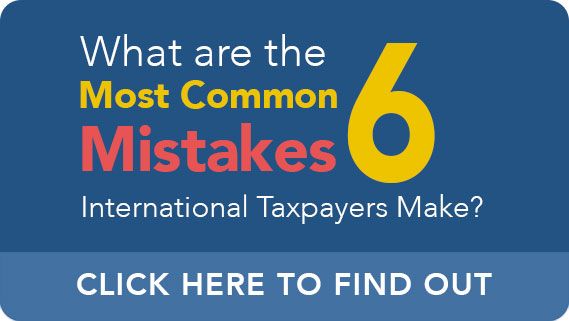Accountant for Foreigners Investing in U.S. Real Estate
Investing in real estate can be a lucrative endeavor, especially in some areas of the United States. These investments are possible for both American citizens and foreign nationals, though those from another country should be aware of the tax implications that accompany the purchase of U.S. property. The various requirements surrounding the purchase, ownership, and rental of real estate by a foreign person can be tricky and will likely require the expert touch of an experienced international tax specialist.
The accountants at U.S. Tax Help offer that same specialty to people around the world, regardless of nationality or tax status. If you or someone you know is looking to buy some property in the United States, let the expert CPAs at U.S. Tax Help guide you to a profitable conclusion. For more information on all our services or to set up an initial consultation, visit us online or call (541) 362-9127 today.
Determining Your Tax Status as a Nonresident Alien
The first element that may impact a person’s real estate investment is their tax status under U.S. law. Foreign citizens, also referred to as nonresident aliens, are taxed differently than American citizens or residents, so it is important to determine your tax status before investing in U.S. real estate. According to the Internal Revenue Service (IRS), anyone who has not passed either the substantial presence or green card tests will be taxed as a nonresident alien.
- The green card test simply refers to whether a person has been granted an alien registration card (also called a “green card”) by the U.S. Citizenship and Immigration Services.
- The substantial presence test is a measure of how many days you have been present in the U.S. over the last three years. This test relies on a somewhat complex calculation that a knowledgeable accountant can explain in greater detail.
The primary circumstance in which a foreign citizen will be required to file a tax return with the IRS is if they have earned money within the United States through a trade or business. Additional reasons include the collection of rent, which is taxed differently than business-related income.
Purchasing U.S. Property as a Foreign Person
In many respects, purchasing real estate in the U.S. involves essentially the same process for Americans and foreign citizens alike; however, the taxes that are imposed at the end of the process are not, especially if the property being purchased is intended to be a rental property. On all sources of fixed or periodic income or profits – such as rent – nonresident aliens are taxed at a flat 30% rate. This tax can represent a significant chunk of revenue from a U.S. property, though there are sometimes ways to circumvent this tax.
In addition, all owners of U.S. real estate must pay property taxes to the local government in the area where that property is located. This rate of taxation can vary widely from state to state and county to county; whereas a house in Alabama may be taxed at less than 1% of the property’s value, a home in Illinois may be taxed at 2% or 3% of its value. For this reason, it is important to look into the taxes in the specific locale where you would like to purchase some real estate.
Complications in Buying American Real Estate as a Foreign Investor
Though it may seem straightforward – at least on paper – the process of buying property from another country can be influenced by a variety of complications, including fluctuations in the exchange rate or difficulties securing a loan from a financial institution. In cases like these, having a keen financial mind on your side with experience in international transactions and taxation can make all the difference.
For example, a qualified accountant would be able to tell you that the IRS may withhold as much as 15% of the proceeds from the sale of your property as a capital gains tax – more, if you include the taxes imposed by the Foreign Investment in Real Property Tax Act of 1980 (FIRPTA). Your CPA could also describe for you the deductions you may qualify for under U.S. law, including the deduction of business expenses or losses that could help ameliorate your overall tax obligation.
Other tax considerations abound: The foreign tax credit may allow you to further reduce your burden, depending on whether you earned income from a foreign source in connection with U.S. business dealings. If you have children or dependents, you may be eligible for a tax credit; if proceeds from earned income or the sale of property were withheld at the source, properly claiming the amount withheld can make a difference as well. These issues and more are best addressed by a skilled professional who can ensure you see the greatest possible return on your U.S. real estate investment.
International Accountant Available for a Consultation on Investing in U.S. Real Estate
If you have been considering an investment in American real estate, the professionals at U.S. Tax Help can guide you through the process from start to finish. The team of accountants at U.S. Tax Help is led by Ted Kleinman, a CPA with more than three decades of experience in this field and a resource you are sure to appreciate. Learn more about how Ted and his team can help with your investment by visiting us online or calling (541) 362-9127 today.
